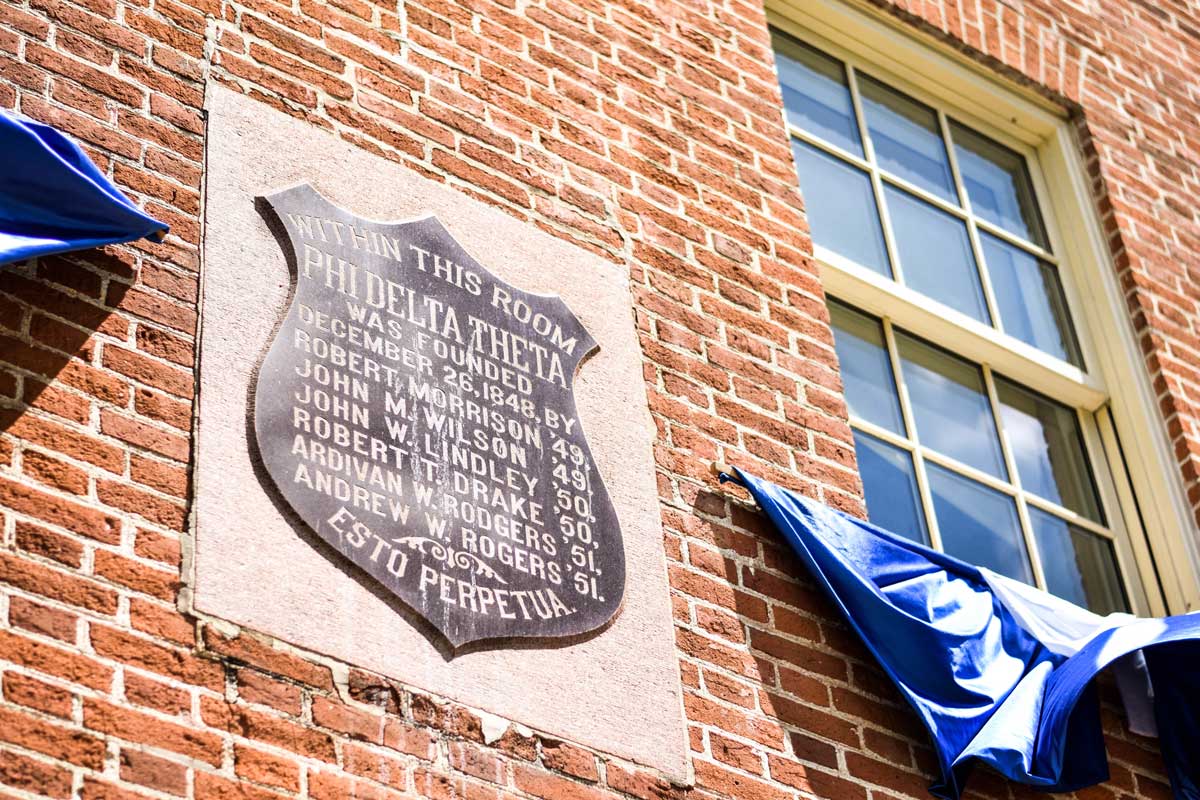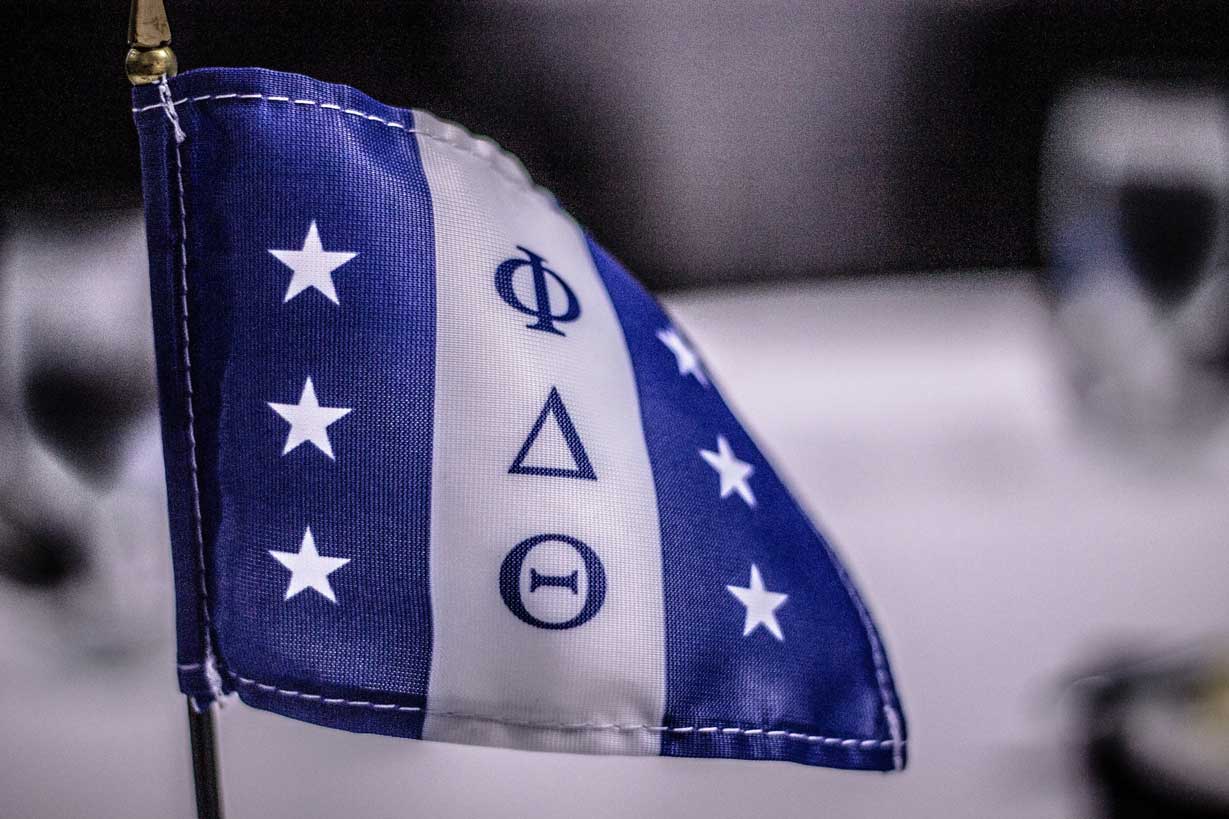The Beginning
As the holidays approached in 1848, the atmosphere on the Miami University campus in Oxford, Ohio was gloomy and uncertain. This was the mood in which Robert Morrison suggested to a close friend and classmate, John McMillan Wilson, that they consider putting together a new collegiate brotherhood. Morrison and Wilson sought out underclassman that they believed they would be dedicated to their cause. Juniors John Wolfe Lindley and Robert Thompson Drake were approached, as were sophomores Ardivan Walker Rodgers and Andrew Watts Rogers, all of whom accepted the concept.
All six men were among the group of Miami students who did not attempt to go home to join their families for the holidays. Winter travel conditions were difficult and could often prove perilous due to harsh winter conditions. The need for close companionship was evident when the six met the night of December 26, 1848 in Wilson’s second floor room in Old North Hall. They firmed up their desire to establish a brotherhood. They met two nights later in the same room to consider an appropriate motto and constitution - The Bond of the Phi Delta Theta. This is the same Bond that every initiate into the Phi Delta Theta Fraternity has since signed.
On December 30, the “Immortal Six” put their signatures to The Bond of the Phi Delta Theta. Their names remain a vital part of the rituals that continue today in every chapter room across the United States and Canada. The Bond has remained unchanged from that day to this.
Our Mission
Phi Delta Theta was built on three pillars that haven’t budged an inch since the Fraternity was founded by “The Immortal Six” way back in 1848 at Miami University. The pillars are: The cultivation of friendship among its members, the acquirement individually of a high degree of mental culture, and the attainment personally of a high standard of morality. Shortened, we refer to the principles as Friendship, Sound Learning, and Rectitude.
Helping every individual to meet his true potential is the bedrock of the Phi Delta Theta Fraternity. By celebrating each person’s true self, and by learning from each other’s strengths while helping to improve each other’s weaknesses, every member of Phi Delta Theta develops into a greater version of himself than he could ever on his own. Rather than try to find young men to “mold” into some ideal, we celebrate the uniqueness of each individual and, through encouragement, values, example and brotherhood, empower every brother to exceed his personal expectations.
Today
Today, Phi Delta Theta is approaching 200 chapters, has approximately 178,000 living alumni, and boasts 100 alumni clubs in the United States and Canada. The Fraternity operates from the General Headquarters building on South Campus Avenue, across from Miami University in Oxford, Ohio.
About Our Chapter
Welcome to Phi Delta Theta at the University of Central Florida. Established in 1997, our fraternity has always been built on the foundation of friendship, sound learning, and moral rectitude. Since our inception at UCF, we have been committed to developing men of strong character, leadership, and academic excellence. As a proud Triple Crown Chapter, we have consistently demonstrated excellence in our endeavors, from academic achievement to leadership and philanthropy. This recognition reflects our dedication to upholding the highest standards within Phi Delta Theta. Our chapter strives to make a positive impact on campus and beyond through community service, leadership development programs, as well as social events that strengthen our bonds of brotherhood. We offer a supportive environment where brothers can grow as individuals while contributing to something larger than themselves. Whether you’re a prospective member, an alumnus, or simply interested in learning more about our chapter, we invite you to explore what it means to be a Phi at UCF.
OUR CARDINAL PRINCIPLES
Friendship
Great friendships are a crucial component of living well, and Phi Delta Theta challenges its members to create long-term and meaningful relationships with each other.
Sound Learning
Sound learning is much more than getting good grades. It’s about intellectual curiosity and the search for truth. It’s about well-roundedness and becoming cultured in all aspects of life.
Rectitude
Rectitude has more to do with the way one approaches living and less with observing dos and don’ts. A commitment to rectitude is a consistent demand to act responsibly and lovingly during one’s college days and throughout life.


